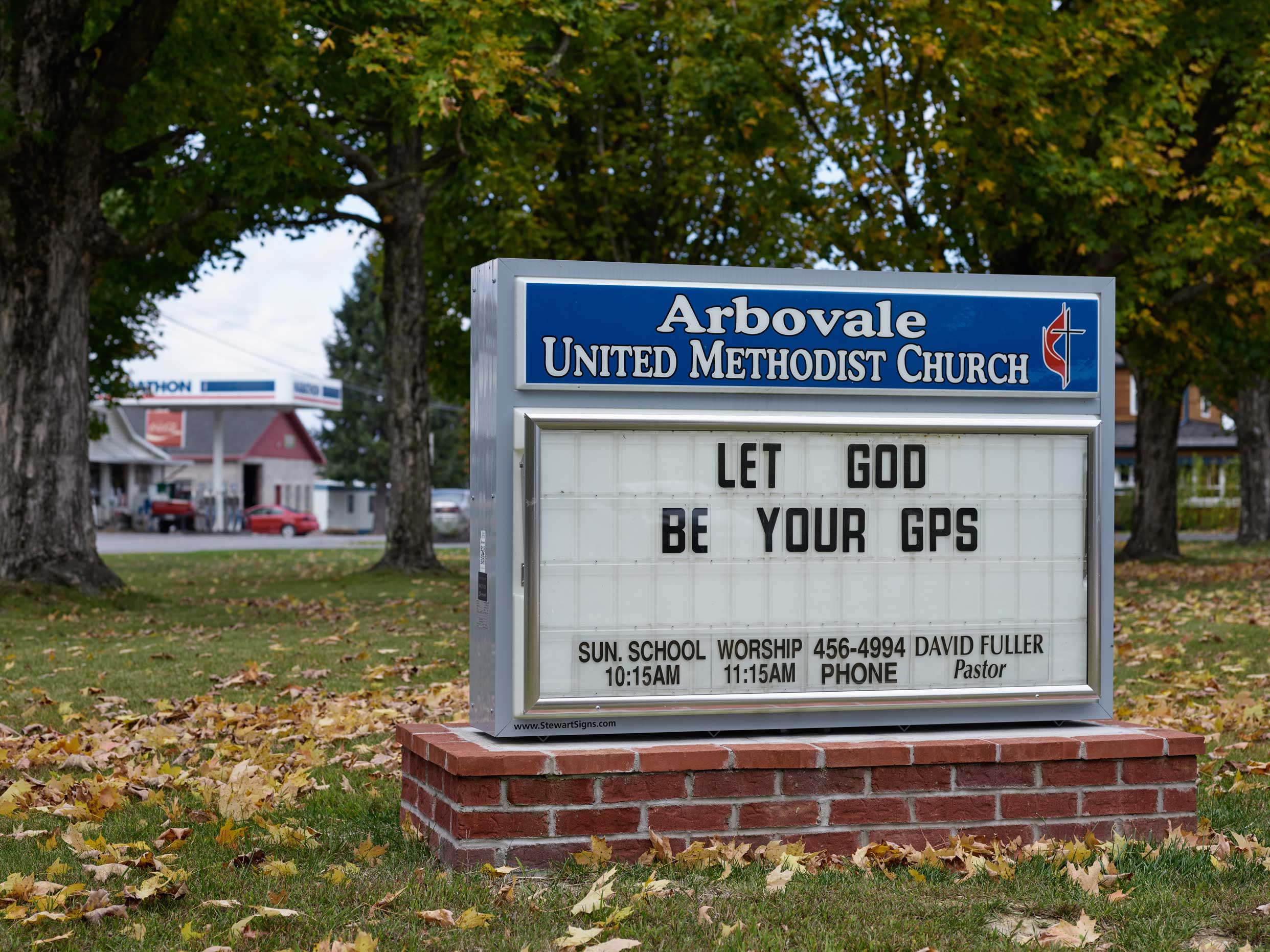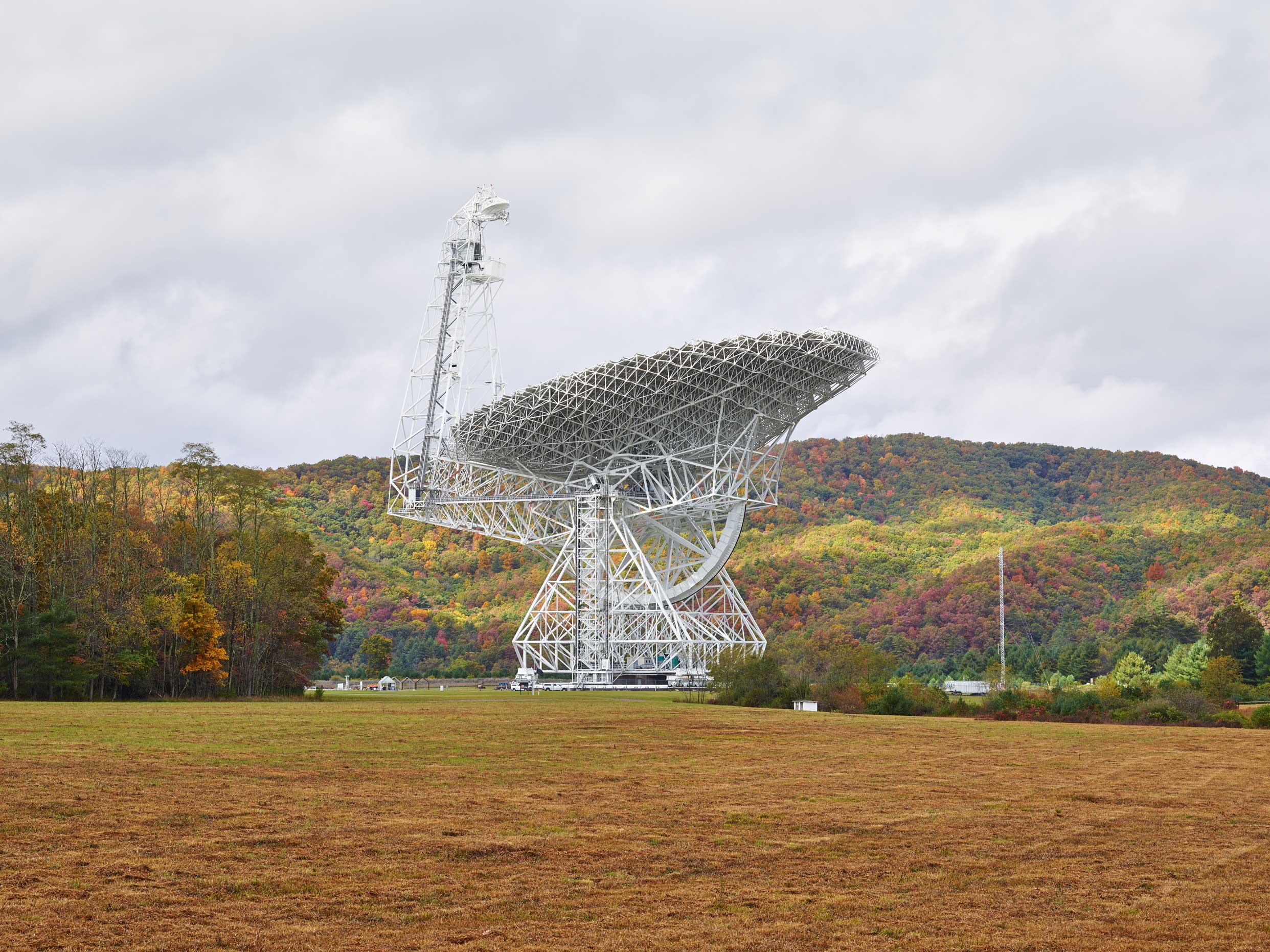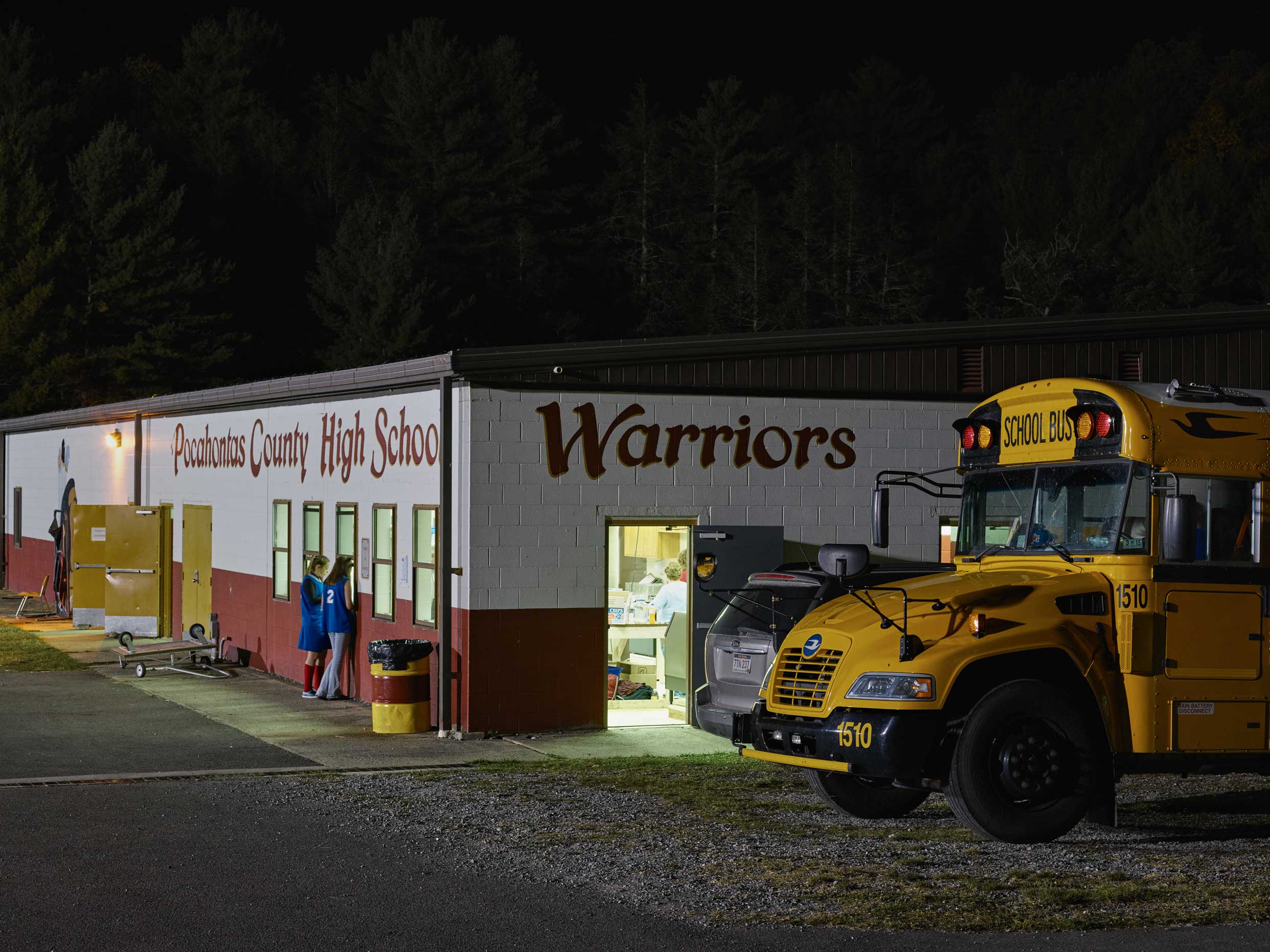Into the Quiet Zone: An American county living entirely off the grid
- Text by Emile Holba
- Photography by Emile Holba

Forewarning from innkeeper Larry Garretson: “There are very few restaurants in Pocahontas County and they all close by 6pm, so make sure you eat tonight before entering the Quiet Zone.”
I opt for a graffiti-strewn wooden booth at High’s diner in Monterey, Virginia. And while I wait for my early-bird burger and fries, I scroll through my iPhone and re-check my route; through the valleys of the Allegheny Mountains, over the stateline and deep into a secluded pocket of West Virginia. Thank the Lord, as they say, for Google Maps.
On the densely forested Highway 250, the frontier spirit of the American Civil War springs to life. Pocahontas County, rooted as it is in family values and the wishes of God, once provided shelter for First Nation folk who had a healthy distrust of government. A hundred years on, the area’s linear topography of steep ravines provides a new type of shelter, one free from any form of radio-frequency interference.

As a portrait and documentary photographer, I’ve been lucky to travel on assignment to some truly remote locations, where mobile reception is frustratingly expensive or slow. But with some persistence I always manage to get online. It feels vital, for some reason, to ‘connect’. Curious of a life offline, I started seeking out a new kind of remote. A place free from society’s latest addiction; a sanctuary of unconnected respite. Somewhere I could not use my phone. All investigations led to the National Radio Quiet Zone (NRQZ) in West Virginia, where I find myself without reception today.
Covering a colossal 13,000 square miles, the NRQZ was established by the US Government in 1954 as a means of refining the new and exciting science of radio astronomy. Today, it is home to one of the world’s most powerful monitoring stations: the National Radio Astronomy Observatory (NRAO) in Green Bank. Boasting a gigantic antenna – an area of 2.3 acres, rising 500 feet high – the Green Bank Telescope looks pretty sci fi. It is in fact the largest moveable object on Earth. And the precious data it receives allows astronomical research as far back as a few milliseconds after the Big Bang, to a period known as the Epic of Reionization, when the very first elements of life were formed. The energy released from this era has travelled over thirteen billions years, so monitoring it, as one might imagine, is something of a fragile business.

“This telescope has the sensitivity equivalent to a billionth of a billionth of a millionth of a watt,” explains Mike Holstine, the manager at NRAO. “The energy given off by a single snowflake hitting the ground and anything man-made would overwhelm that signal.”
To protect the telescopes’ sensitivity, the NRAO patrols the area: radio transmissions are restricted, Wi-Fi routers are a no-no, and microwaves may be confiscated if found. Even the most mundane wireless devices, like baby monitors, are considered contraband. That’s right. No reception. No 4G. Put it this way: that phone in your pocket may as well be a rock.
Facebook, Instagram, Twitter, email, cat memes, sepia-tinted snapshots of a stranger’s lunch. Like a psychotic stream of consciousness, this bespoke slice of the internet whirrs away in our pockets – in our homes, cars and work spaces – every millisecond of every day. Thanks to 4G, we treat ‘connectivity’ as a vital utility, along with gas, water and electricity. But at some point it wears even the techiest among us down. Jaded by our growing obsession with ‘engagement’, incessant greed for status updates, and inexplicable interest in Kim and Kayne’s brand-endorsed world, I started dreaming of a life free from the itch to scroll. It must be possible to escape, I thought, to fully disconnect, and still live and work within the framework of modern society. Why then do so few of us choose to do so?
Inside the National Radio Quiet Zone, meanwhile, disconnection is a way of life.

“Banjos, moonshine, guns, bears and bluegrass – are any of those clichés true?” I’m probing Homer Hunter, a seventy-one-year-old bluegrass legend raised in Pocahontas County, about what life was like before the Green Bank Telescope was built. “All of them, if you think about it,” says Homer. “We’re loaded with bears down here.”
He picks up his guitar to play a song written by his brother about their minister dad: “My daddy made his living in a dungeon made of coal / But he had a full-time job and that was saving souls.”
“We all lived a very righteous life,” says Homer, explaining how his ex-con father “got saved” by a tent revival preacher. “[But my dad’s] family never worshipped the Lord in any fashion. They cussed, raised hell, shot at each other, and made moonshine for the Sheriff of Boone County.”

Homer lives in a humble but spacious homestead by the shore of the Greenbrier River, in an idyllic spot called Stoney Bottom. He whittles garden swing-chairs out of wood. “I’ve never really understood the telescopes,” he says in a sing-song drawl. “I know they listen to sounds and I’ve taken that tour about fifty times. It’s very scientific to me… But education is so important, because this world, this universe, is so vast.”
Despite not owning a mobile phone or having Internet at the property, Homer is well informed about politics, history, music – and he knows how to make a damn fine cherry pie. On his kitchen wall hangs a personal thank-you note: ‘From, Barack and Michelle Obama’. It reads: ‘Thank you for your leadership and support.’
“That’s my president and I’m very proud of it,” says Homer. “We are so prejudiced in this country, still fighting the Civil War every day. I was born in the southern part of the state where blacks were treated bad. My family, my grandmother had slaves… I just felt like if we had a black president, it would show black youth that they had hope of doin’ it themselves one day. But we still have those old clingers-on, you know?”

Homer’s political stance may be at odds with the state’s Republican majority, but there’s one thing he and other locals agree upon. The lack of connectivity is a gift. A way to keep the ills of modern life from encroaching on unspoilt wilderness.
“We’d hear a lot more noise, and it would hurt our economy so bad,” says Homer, when I ask him what would happen if the Observatory were to close, as has been recently threatened. “[It brings visitors and employment] to a county that has just 8,000 people. If the Quiet Zone leaves – it would change our world.”

Midnight on a pitch black night. Bobby leans across the front passenger seat of his pick-up truck, enveloped in a dense haze of cigarette smoke. “What the hell are you doing on my property,” he hollers at me. Clocking the high-power rifle, menacingly placed against the dashboard, I reply with my best British ‘innocent’ accent. “I’m photographing the 1940s chromium petrol pumps,” a response so left-field, all he can do is drive on bewildered. That was my first encounter with Bobby.
Word spreads that an ‘eccentric’ English photographer is in the area, and my second meeting with Bobby is rather more civilised. A cattle farmer and owner of Trent’s convenience store (selling fishing tackle, guns, Gatorade, washing line cord, propane gas, beer, breakfast cereal, plumbing supplies and artificial lamb’s nipples, to name a few) Bobby, like Homer, sees no disadvantage in operating his business here. He organises his day well in advance, knowing that the community he supplies lives and works in the same unconnected space. Even his goods’ suppliers have adapted, delivering shipments without calling ahead en route. Like Homer, he sees the Observatory as an asset. “Trent’s is only a stone’s throw from the GBT,” Bobby says before drawing deeply on another cigarette. “If it weren’t for it and the interstate [highway], I wouldn’t be in business.”
But it’s on a personal level that the lack of connectivity gathers meaning. The more I travel around the Quiet Zone, the more I find myself adapting to life without round-the-clock connection. Within days of losing signal, the subconscious need to lift my iPhone, swipe the screen and open apps – for no apparent reason – starts to fade. Days slow down. Anxieties disappear. That omnipresent sense of urgency that once weighed me down begins to lift. And yet, I feel more productive than ever.
 Not everyone I meet was raised here. Some people seek out the Quiet Zone as if it’s the last safe place on Earth.
Not everyone I meet was raised here. Some people seek out the Quiet Zone as if it’s the last safe place on Earth.
“I looked like a concentration camp victim,” says former architect Jennifer Wood. “In a Wi-Fi place I’d feel sick to my stomach, I’d lose all energy, and have pins and needles. It would get really bad in the middle of the day when cell-phone usage was peaking. Then I’d go to the beach where there was no reception and within minutes my symptoms would be gone.”
Jennifer moved to the Quiet Zone after hearing about Diane Schou – Pocahontas County’s most well-known “technological leper”.
“That’s a term I came up with,” says Diane, as we turn down the dirt track that leads to her home. “Our living conditions are, I suspect, like leprosy. We can’t be where crowds are, we have to stay away from people, because most people are carrying cell phones and that harms us. It’s not something we want, we desire, but at least we are able to survive.”

Diane moved from Iowa after suffering from symptoms that started, she says, when a cell-phone tower went up near her home. “My vision changed, my skin got wrinkled, I thought I was getting older,” she says. “Then I got a headache. It was like someone hit me with a sledgehammer, and as we approached home [and the tower] the headache would grow and grow and grow.”
Now that she’s “in recovery”, Diane has a few gadgets in her house: a food processor, a jar-opener, a warming drawer for food. “It’s so remote and visitors forget to eat before they drive here,” she says, “so it’s nice to have something warm that I can serve.”
Jennifer, on the other hand, lives further off-grid. “I couldn’t even go in Diane’s house because, as you can see, she’s recovered quite a bit; she has all those electrical gadgets,” she says. “Eventually, I found my way down to a farm where there was no electricity at all. After two weeks of living there, I started gaining weight.”

By Diane’s estimation, she is among fifty-seven technological lepers; people who have moved here for respite from a toxic world. “To the scientists who know about this, it’s 100 per cent real,” says Burt, Diane’s husband. “We’ve been able to prove that by grabbing hold of antennas. Those who are electrosensitive, the antennas will spike much more than those who are not. You’re like a canary in a coal mine.”
Diane and Bruce are not alone in their convictions. But their pilgrimage, for many locals, is a contentious issue. “I’m happy that they’re finding refuge here,” says local news anchor Heather Niday. “I do worry that people may look at us like the place where crazies come.”

But for people on Diane’s wavelength, there is no other choice. “My father died, I went to his funeral. When my son got married, I did go to his wedding. But [I do not leave the Quiet Zone] for fun,” says Diane, adding that church is the only place she really feels safe. “The problem for me with US cellular, is that this is sort of my prison. But it’s a beautiful prison.”
Diane moves around her house and offers one last science lesson. “This can morph to sensitivities of other frequencies,” she says. “And there are billions of other frequencies.”
I leave her home feeling inexplicably nauseous.
After another phone-free morning photographing in and around the NRAO at Green Bank, I head back to Trent’s to hang out at the store’s cash desk and carpark. Trent’s provides a social lighting rod for the strip of Highway 250 running through Bartow. Every walk of life frequents the store, from passing traffic visiting the Highland Scenic Highway and blue collar workers, to moms dropping in after the school run to gather the week’s supplies. Trent’s is alive with loud gossip and crude banter.
Here is a location promoting all the hallmarks of capitalism that doubles as a community symposium. No one is communicating with anyone other than the people that are here right now. They’re not on iMessage, email or WhatsApp. They’re engaging, face to face.
“We do have broadband at home,” says one mom. “The difference is, the Internet doesn’t follow me. When I go to watch my kid’s soccer game, every parent on that field is watching their kid play soccer. Nobody is looking at their cell phone. You really don’t see that struggle here where parents tell their kids to put their phones away, and the kid says, ‘Do I have to?’”
High up on The Horse Ridge photographing the surrounding landscape on my last day, I watch the majestic Green Bank Telescope turn 180 degrees on its axis nearly eighteen miles away – such is the enormity of the technological prowess displayed by the Zone’s heart. Underneath a cloudless sky, I breathe in the crystal clear air and listen to nature’s silence. I have witnessed similar commanding views before but never free from the interruption of a stray ringtone, or some Red Bull-inspired chancer hoovering their drone into my peripheral vision, or a group of needy tourists seeking validation of their memories on SnapChat or Instagram. In fact, for a region of rugged beauty, the Quiet Zone is remarkably tourist-free. Pocahontas County is easily accessed from Baltimore, D.C., Pittsburgh and Philadelphia. Could it be that the lack of connectivity puts people off?
Visiting Mike Holstine for the last time at Green Bank, I comment on just how loud radio silence is. Laughing, Mike agrees. “The silence is quite nice – quite calming, quite rooting. It roots you back into the Earth.”
Welcome to the Quiet Zone, a five-part radio documentary, is available now on BBC Radio 4.
Find out more about Emile Holba’s work.
This article originally appeared in Huck 51 – The Adventure Issue. Grab a copy in the Huck Shop or subscribe today to make sure you don’t miss another issue.
Latest on Huck

The inner-city riding club serving Newcastle’s youth
Stepney Western — Harry Lawson’s new experimental documentary sets up a Western film in the English North East, by focusing on a stables that also functions as a charity for disadvantaged young people.
Written by: Isaac Muk

The British intimacy of ‘the afters’
Not Going Home — In 1998, photographer Mischa Haller travelled to nightclubs just as their doors were shutting and dancers streamed out onto the streets, capturing the country’s partying youth in the early morning haze.
Written by: Ella Glossop

See winners of the World Press Photo Contest 2025
A view from the frontlines — There are 42 winning photographers this year, selected from 59,320 entries.
Written by: Zahra Onsori

Inside Kashmir’s growing youth tattoo movement
Catharsis in ink — Despite being forbidden under Islam, a wave of tattoo shops are springing up in India-administered Kashmir. Saqib Mugloo spoke to those on both ends of the needle.
Written by: Saqib Mugloo

The forgotten women’s football film banned in Brazil
Onda Nova — With cross-dressing footballers, lesbian sex and the dawn of women’s football, the cult movie was first released in 1983, before being censored by the country’s military dictatorship. Now restored and re-released, it’s being shown in London at this year’s BFI Flare film festival.
Written by: Jake Hall

In the dressing room with the 20th century’s greatest musicians
Backstage 1977-2000 — As a photographer for NME, David Corio spent two decades lounging behind the scenes with the world’s biggest music stars. A new photobook revisits his archive of candid portraits.
Written by: Miss Rosen